Public Opinion Poll: How do Utahns Really Feel about Anti-Discrimination Laws?
In an effort to bolster support for its proposed legislation, Equality Utah—a “gay rights” organization—points to a poll it conducted as evidence that the majority of Utahns agree with its proposal. The key claim in the poll is that “73% somewhat or strongly favor a statewide nondiscrimination law in employment.” The organization’s executive director commented, regarding this poll, that the claimed 73% support by Utahns “enhances our opportunity to achieve statewide passage for these important protections.”
The question asked was this: “Would you favor or oppose a statewide law (statewide nondiscrimination law) that makes it illegal for someone to be fired from a job solely because they are gay or transgender?” We theorize that many respondents did not understand the implications of this question, and therefore were more likely to express support. To test this theory, we decided to conduct a brief public opinion poll asking related questions with more context for the respondents regarding what the illegality of such discrimination might entail. In other words, when Utahns understand that business owners or landlords could be fined or jailed based on their discriminatory decisions as property owners, will they still support Equality Utah’s proposed legislation?
We surveyed 750 random Utah voters on November 22 and 23, 2013 via an automated phone system. Sampled voters were contacted and administered a questionnaire. The margin of sampling error is ±3.57%.
NEW: Those wishing to perform their own analysis of the survey results may download the full data here. Questions? Contact us. (Note: the initial version of this file accidentally included personal identifying information which has since been removed.)
1. Do you believe that individuals have the right to associate and do business with whomever they choose?

Here is the breakdown by political affiliation:
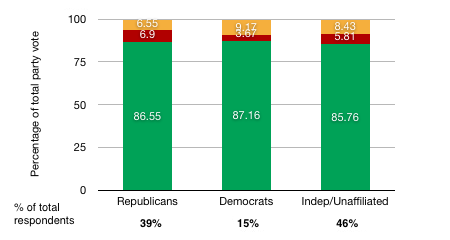
Here is the breakdown by age group:
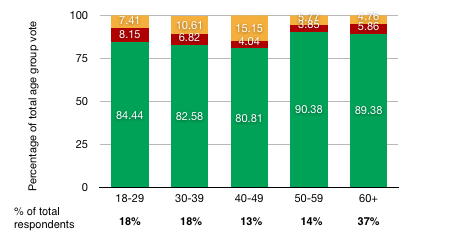
Here is the breakdown by religion:
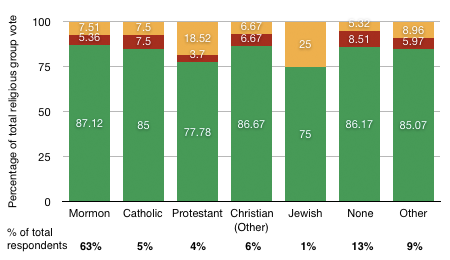
2. Do you believe that business owners should be able to employ whoever they want based on whatever criteria they establish?

Here is the breakdown by political affiliation:
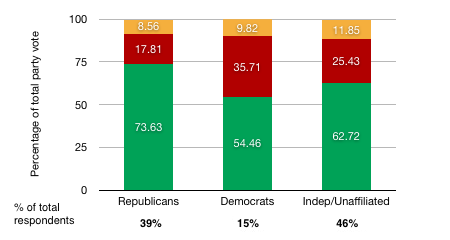
Here is the breakdown by age group:
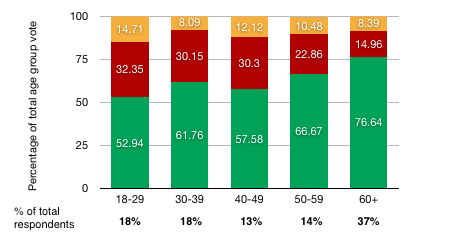
Here is the breakdown by religion:
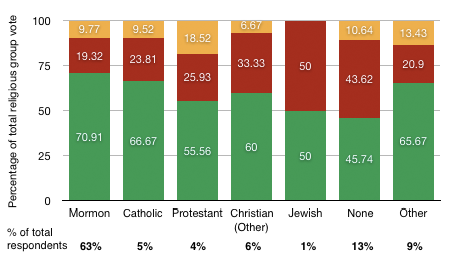
3. If a Catholic landlord wishes to rent his property only to Catholic families, do you believe he should be punished with fines or jail time for not renting his property to an atheist?

Here is the breakdown by political affiliation:
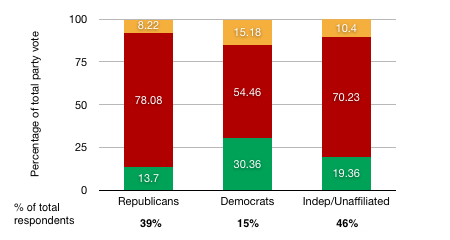
Here is the breakdown by age group:
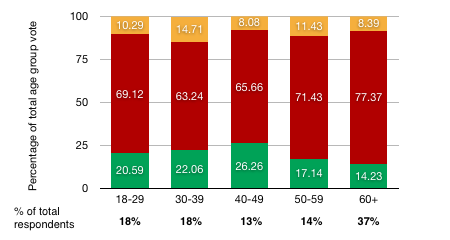
Here is the breakdown by religion:
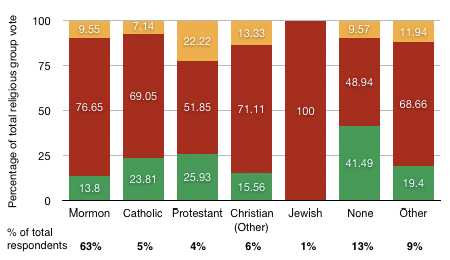
4. If a gay or transgender person wants to purchase a company’s services, but the owner of the company does not wish to offer their services to him or her, whether for religious reasons or otherwise, should the owner be punished with fines or jail time for discriminating against the gay or transgender potential customer?

Here is the breakdown by political affiliation:
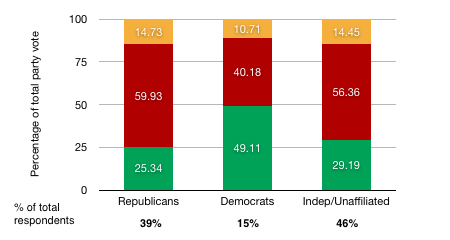
Here is the breakdown by age group:
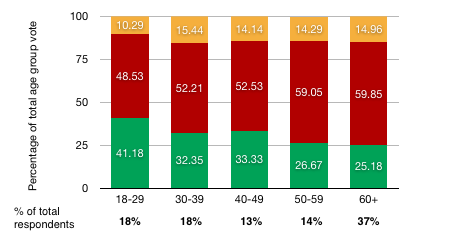
Here is the breakdown by religion:
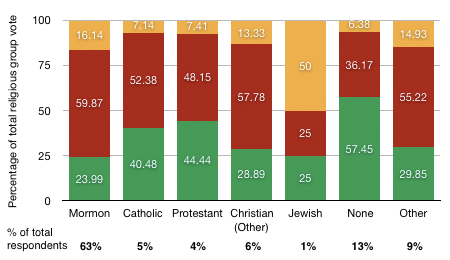
5. Do you believe that laws punishing a business owner or landlord for not wanting to employ or rent to a gay or transgender person violate that owner’s property rights?

Here is the breakdown by political affiliation:
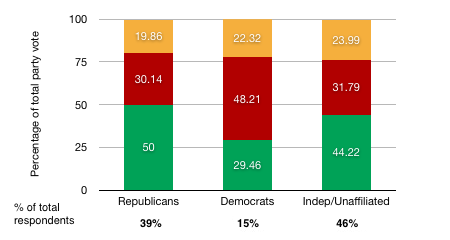
Here is the breakdown by age group:
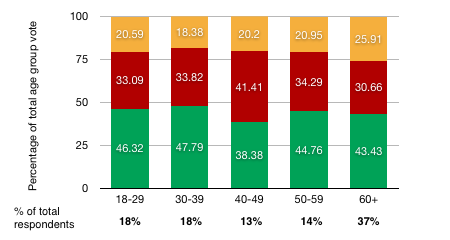
Here is the breakdown by religion:
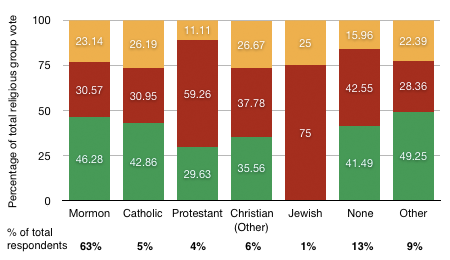
6. Do you believe that an owner of a business, such as a restaurant, should be punished with fines or jail time for asking a gay or transgender person to leave his property?

Here is the breakdown by political affiliation:
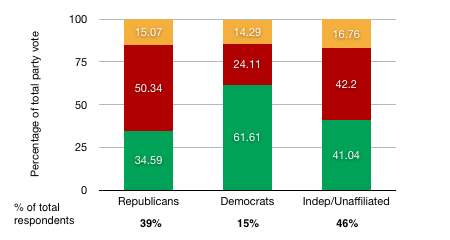
Here is the breakdown by age group:
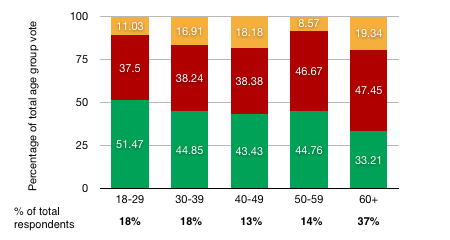
Here is the breakdown by religion:
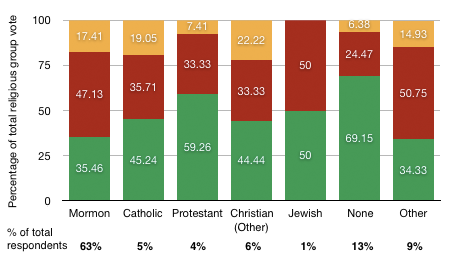
7. Do you have family members or close friends who are gay or transgender?

Here is the breakdown by political affiliation:
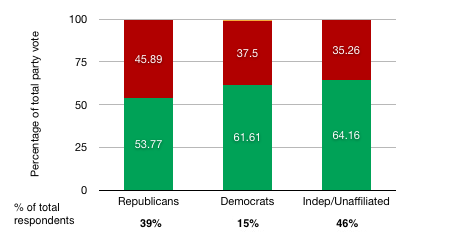
Here is the breakdown by age group:
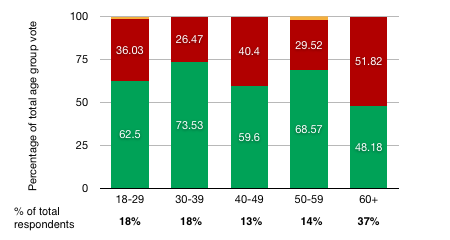
Here is the breakdown by religion:
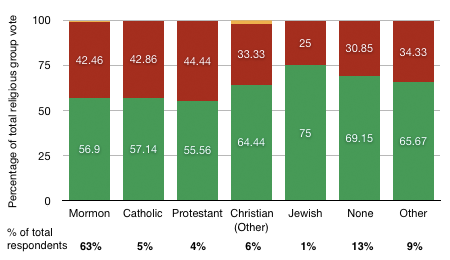
Analysis
These results validate our initial theory, and suggest that context to the issue of anti-discrimination law changes the willingness of Utahns to advocate for laws penalizing discrimination. When it is understood that violation of these laws will bring fines or jail time, Utah voters are much less willing to criminalize discrimination.
Perhaps unsurprisingly, the targeted minority in question 3 (regarding a Catholic choosing not to rent to an atheist) was most comfortable with outlawing the discrimination against them. Those who affiliate with no religion (atheists/agnostics) were twice as likely to favor punishing discriminating landlords than their religious counterparts.
Interestingly, those who indicated having a gay or transgender family member or close friend did not respond much differently on questions of discrimination against gay and transgender persons than those who did not have such a relationship. For example, question 4 (regarding punishing a business owner for refusing services to a gay or transgender person) yielded the same response from both groups: 30.6% of those who have a close relationship with a gay or transgender person favor punishing discriminating business owners, while 30.8% of those who don’t have a close relationship with a gay or transgender person favor punishment.
As proponents continue their efforts to enact laws punishing this type of discrimination, it is likely that they will appeal to emotion and highlight the perceived injustice of being discriminated against by business owners or landlords for their sexual orientation or gender identity. The structure of the questions asked in their survey, designed to suggest widespread support among Utahns, utilizes this approach.
But the results in our opinion poll suggest that contextualized questions—in which Utahns realize that supporting such laws implies supporting imposing fines or jail time upon the property owner—significantly erode the perceived support for their cause. Laws are not just official pronouncements of how a person should act—they are enforced with actual punishment for deviating from the state’s mandates. A majority of Utah voters are currently unwilling to violate property rights and impose fines or jail time upon business owners or landlords for discriminating against an individual.

